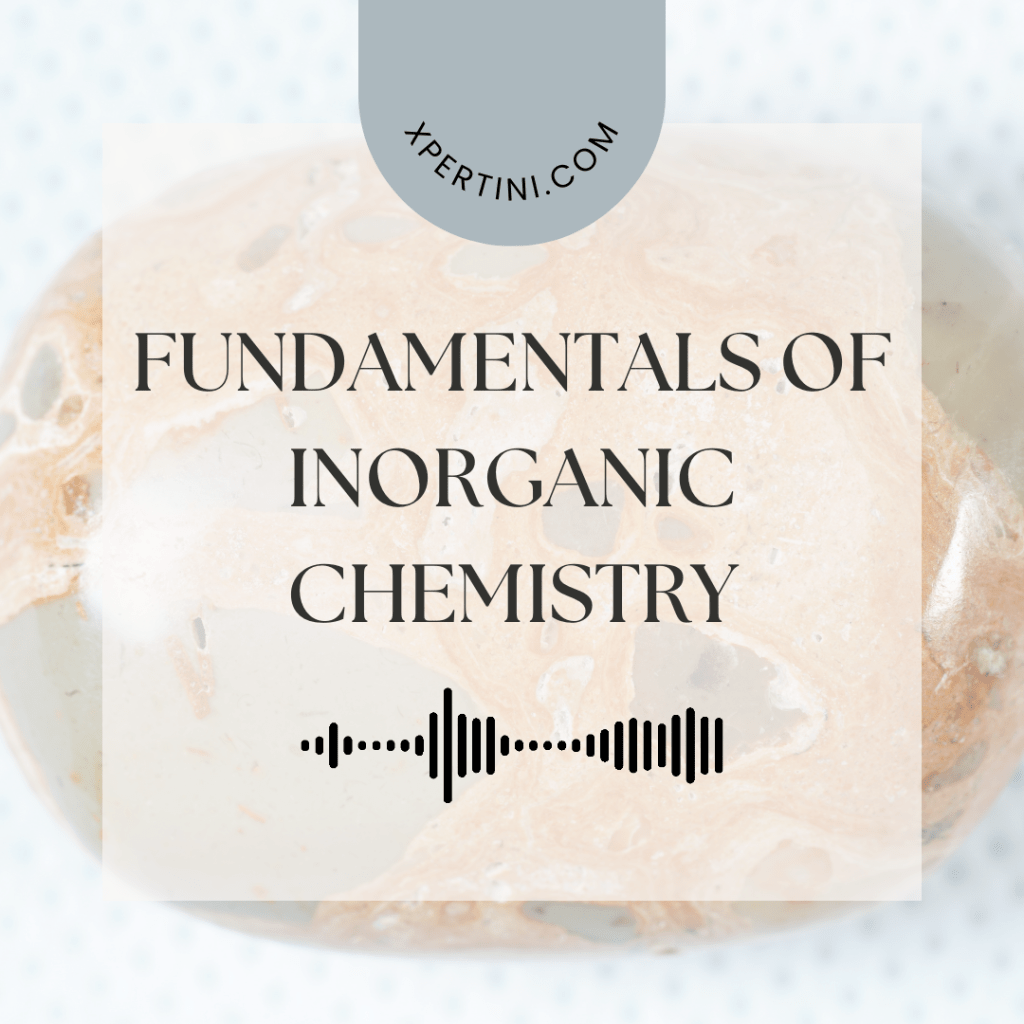Fundamentals of Inorganic Chemistry
Course Summary
This comprehensive course in inorganic chemistry serves as an exploration into the fundamental principles and applications within the discipline. Delving into the historical evolution, atomic structure, chemical bonding, and periodic table trends, it systematically unpacks the complexities of inorganic chemistry. Notable figures and milestones are dissected, offering a profound understanding of the field’s evolution. The course then transitions seamlessly into dissecting the atomic model, examining subatomic particles and their properties in a manner that is both accessible and engaging.
As the journey continues, the exploration into chemical bonding deepens, uncovering the types and implications that govern inorganic compounds. Molecular geometry’s influence on chemical properties is meticulously examined, bridging theory and practical applications. The periodic table takes center stage, its significance meticulously analyzed alongside an exploration of atomic and chemical properties’ trends.
The course’s narrative unfolds into the descriptive chemistry of inorganic elements, classifying and detailing their properties and reactions. Transitioning seamlessly, a dedicated exploration of transition metal chemistry ensues, unfolding electronic configurations, magnetic properties, and catalytic activity with depth and clarity.
The journey crescendos with an introduction to coordination chemistry, where complex ions and compounds take the spotlight. Understanding ligands, coordination numbers, and isomerism provides a comprehensive view of this aspect of inorganic chemistry. The analysis then takes a pragmatic turn, dissecting inorganic reaction mechanisms, identifying key pathways with precision.
Culminating with a spotlight on diverse career opportunities, the course provides invaluable insights for those seeking to navigate the expansive field of inorganic chemistry. Strategic career planning, academic pursuits, and continuous professional development are illuminated, equipping learners with the tools to thrive in their future endeavors.
This course, with its carefully crafted structure and engaging content, serves as a foundational stepping stone for aspiring chemists, offering not only knowledge but a strategic roadmap for success in the landscape of inorganic chemistry.
Course Overview
This course is designed to provide a comprehensive understanding of the fundamental principles of inorganic chemistry. Whether you are aspiring to pursue a career in the field or seeking to enhance your knowledge, this course will lay the groundwork for a solid understanding of inorganic chemistry concepts.
Course Objectives
- Gain a foundational understanding of inorganic chemistry principles.
- Develop the ability to apply theoretical concepts to real-world scenarios.
- Explore the historical evolution of inorganic chemistry.
- Understand the significance of inorganic chemistry in various industries.
- Foster critical thinking and problem-solving skills in the context of inorganic chemistry.
- Explore the interdisciplinary nature of inorganic chemistry and its connections to other scientific fields.
- Develop proficiency in the use of laboratory instruments and techniques.
- Appreciate the role of inorganic chemistry in technological advancements.
- Explore diverse career opportunities in the field of inorganic chemistry.
Course Outcomes
- Demonstrate a deep understanding of the fundamental principles of inorganic chemistry.
- Apply inorganic chemistry concepts to solve real-world problems.
- Retain and recall key theories, principles, and chemical reactions.
- Develop a genuine interest and curiosity in the field of inorganic chemistry.
- Demonstrate effective problem-solving skills within the context of inorganic chemistry.
- Reflect on and assess their own learning progress and understanding.
- Engage in collaborative laboratory work and projects.
- Apply inorganic chemistry knowledge to authentic, real-world scenarios.
- Demonstrate competence through various forms of assessment, including exams, projects, and presentations.
- Apply theoretical knowledge to practical situations, emphasizing the application of inorganic chemistry in industries and research.
Course Audience
- Students aspiring to pursue a career in chemistry or related fields.
- Professionals seeking to enhance their knowledge of inorganic chemistry.

